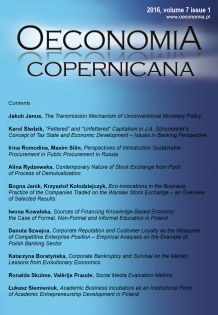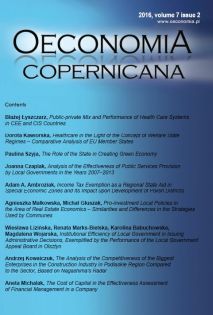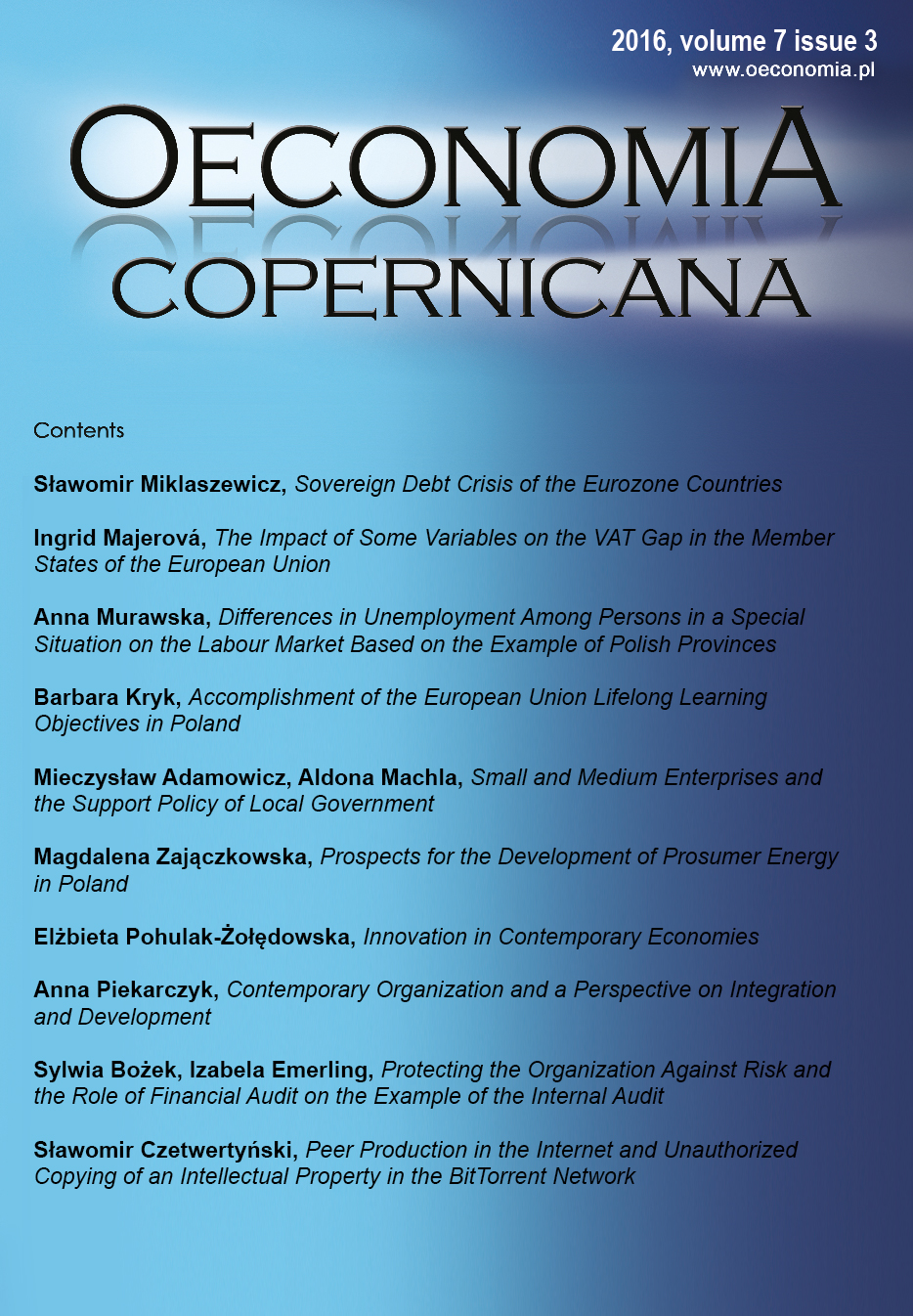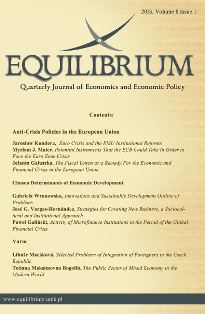
THE TRANSMISSION MECHANISM OF UNCONVENTIONAL MONETARY POLICY
THE TRANSMISSION MECHANISM OF UNCONVENTIONAL MONETARY POLICY
Keywords: unconventional monetary policy; monetary transmission mechanism; central banking; quantitative easing
The implementation of unconventional (nonstandard) monetary policy instruments by the leading central banks at the wake of the financial and economic crisis was the most significant shift in the practice of central banking in the recent years. Evaluation of their effects is not feasible without a thorough recognition of the transmission mechanism of various balance-sheet policies, such as quantitative easing. The transmission channels of a standard interest-rate policy are based on a group of theories that are relatively coherent and well-documented. On the contrary, identification of similar framework for unconventional measures proved to be a complicated task. The aim of this paper is to extract and evaluate the theoretical efficiency of particular channels of unconventional monetary policy. This goal requires references to at least several, to some extent mutually exclusive, theories. It is also inevitable to draw one’s attention to the relative significance of identified channels, depending on the nature of used unconventional tools, as well as on reactions of financial institutions and other economic agents to undertaken actions. This paper discusses three broad channel of the unconventional policies transmission mechanism: the signaling channel, the liquidity channel, and the portfolio-balance channel.
More...


